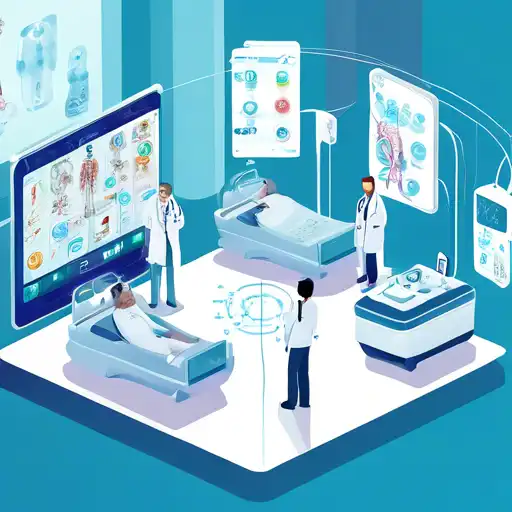Introduction to IoT in Healthcare
The integration of the Internet of Things (IoT) into healthcare is transforming the industry in unprecedented ways. By enabling devices to collect, analyze, and transmit health data in real-time, IoT technologies are improving patient outcomes, enhancing efficiency, and reducing costs. This article explores the pivotal role of IoT in healthcare and how it's setting new standards for medical care.
How IoT is Changing Healthcare
IoT in healthcare, often referred to as the Internet of Medical Things (IoMT), encompasses a wide range of applications from remote monitoring to smart sensors and medical device integration. These technologies are making healthcare more proactive rather than reactive, allowing for early detection of potential health issues and timely interventions.
Remote Patient Monitoring
One of the most significant benefits of IoT in healthcare is the ability to monitor patients remotely. Wearable devices and home monitoring equipment can track vital signs such as heart rate, blood pressure, and glucose levels, sending alerts to healthcare providers if abnormalities are detected. This not only improves patient care but also reduces the need for hospital visits.
Enhanced Drug Management
IoT technologies are also revolutionizing drug management through smart pill bottles and dispensers that remind patients to take their medication and track adherence. This is particularly beneficial for patients with chronic conditions who require strict medication schedules.
The Future of IoT in Healthcare
The potential of IoT in healthcare is vast, with future advancements expected to bring even more innovative solutions. From AI-powered diagnostics to blockchain for secure patient data sharing, the possibilities are endless. However, challenges such as data security and interoperability need to be addressed to fully realize the benefits of IoT in healthcare.
Challenges and Considerations
While IoT offers numerous advantages, it also presents challenges, including data privacy concerns and the need for robust cybersecurity measures. Ensuring the security of patient data is paramount as healthcare becomes increasingly connected.
Conclusion
IoT in healthcare is indeed a game changer, offering innovative solutions that improve patient care, streamline operations, and reduce costs. As technology continues to evolve, the integration of IoT in healthcare will undoubtedly deepen, bringing us closer to a future where personalized, efficient, and accessible healthcare is a reality for all.
For more insights into how technology is transforming healthcare, explore our articles on Digital Health and Medical Technology.
